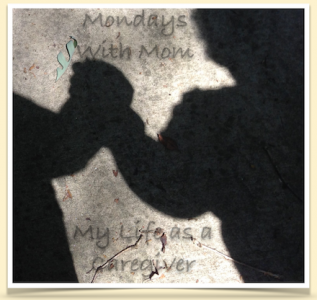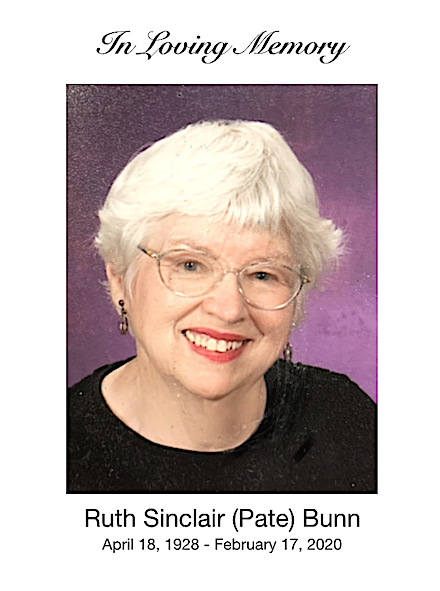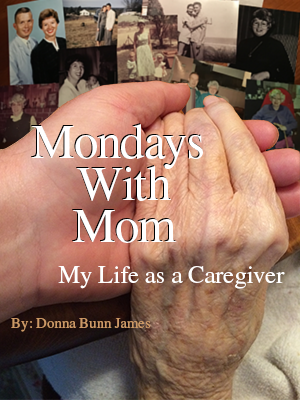
We have been so fortunate with Mom in terms of her moods. I know that dementia affects each patient differently and I have seen ministers become angry and swear like sailors, or docile, petite women turn into banshees. It’s a horrible disease and it can wreck havoc on relationships and whole families. My heart aches for those who have to deal with such emotional difficulties in addition to basic caregiving.
Mom can get irritated and irrational, but she doesn’t stay that way for long. The hardest thing for me when caring for Mom is confronting her fears. When she’s lost and fearful, she sometimes cries (see last week’s article here). However, it’s much harder when she gets scared and frightened.
Much of Mom’s behavior reminds me of my children when they were little. I could help them master their fears by “monster spray” (a bit of lavender and water in a spray bottle) or big, tight hugs. Occasionally, I would fall asleep in their beds protecting them. With Mom, I can’t spray or hug away the fears. Consoling her is next to impossible when she’s afraid of things I cannot see but are in the room right next to us.
Alz.org is a wonderful site full of excellent ideas. I turn to it so often when I’m running out of steam. Here’s their advice for such a situation:
Do: Back off and ask permission; use calm, positive statements; reassure; slow down; add light; offer guided choices between two options; focus on pleasant events; offer simple exercise options, try to limit stimulation.
Say: May I help you? Do you have time to help me? You’re safe here. Everything is under control. I apologize. I’m sorry that you are upset. I know it’s hard. I will stay with you until you feel better.
It seems so simple: turn on more light, slow down, and be calm. In other words, the opposite of everything I want to do when getting frustrated. I preach it to my students though, week after week. When a section (I call it a “hot spot”) isn’t going well, take a deep breath and practice slowly. Break it down into its simplest form.
I need to do this in many parts of my life, but especially for Mom. She needs me just as much as my children needed me when they were young. She needs me to comfort her fears, console her spirit, and be consistent with her.
If you are a caregiver, whether for children or adults, we all reach the end of our ropes. Don’t give into your own fears: you are in this place for a season and for a reason. Take care of yourself so you’ll be able to continue caregiving.
Remember that you don’t walk alone. No one is alone, really. (Click on the words to hear encouraging music.)



